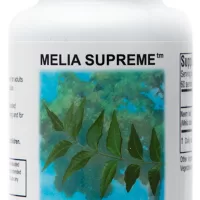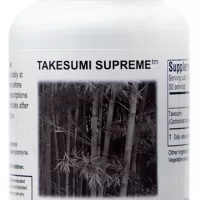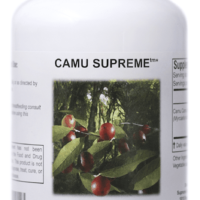Don’t be fooled by the name! Tennis elbow isn’t just a risk for tennis players. While people who put in time on the court are especially susceptible to this overuse condition, people from all walks of life can experience the pain and stiffness of tennis elbow. Tennis elbow (lateral epicondylitis) is characterized by inflammation, swelling, and “micro-tearing” of tendons joining the forearm muscles positioned on the outside portion of the elbow. This is not to be confused with a similar condition called golfer’s elbow that involves the muscles on the inside of the elbow.
Tennis elbow is caused by overuse. This is why it’s common among people who make repetitive movements when swinging a tennis racket. However, you can still have tennis elbow even if you’ve never picked up a racket in your life! Anyone who performs repetitive motions of any kind using their arm is at risk for developing tennis elbow. This includes painters, plumbers, line workers, mechanics, butchers, medical professionals, caretakers, landscapers, auto workers, and desk workers. The telltale symptoms of tennis elbow include:
- Pain, burning, or aching along the outside of the forearm.
- Pain that travels to your wrists.
- Weak grip strength extending from the forearm to the hands.
Many people find that pain from tennis elbow tends to flare up at night. While the immediate treatment for a suspected case of tennis elbow is rest, this often isn’t enough to provide relief and restoration for people who are in pain. Many people look for immediate and lasting relief from tennis elbow because they need to use their arms and hands to continue with their work. At AZMulticare in Scottsdale, we use cutting-edge shockwave therapy to help our patients achieve great results while healing from tennis elbow. Dr. Robinson has been treating patients for tennis elbow pain for 18 years!
What Can You Expect From Shockwave Therapy?
Shockwave therapy is a targeted non-invasive treatment that offers tailored therapeutic benefits based on the location and severity of your pain. Shockwave therapy helps to repair tissue injuries by inducing “microtrauma” at the spot of your pain. This activity jumpstarts your body’s natural healing response at the cellular level. During your session, the shockwaves that are administered will instantly boost the production of blood vessels in the affected area of your arm to ramp up the delivery of nutrients to the spot.
“Shockwave therapy can reduce the severity of pain and improve daily activity,” according to a 2018 clinical study on the short-term effects of shockwave therapy for tennis elbow. In addition to helping people get back to work, this fast relief can also make it easier to follow through with physical exercises for strengthening and healing the arm without pain and stiffness. A 2008 study looking at the effectiveness of shockwave therapy versus percutaneous tenotomy (surgery) for tennis elbow found that shockwave therapy is a useful noninvasive treatment method that reduces the necessity for surgical procedures. What’s more, this study shows that even patients who do not get relief from traditional treatments for tennis elbow can still benefit from shockwave therapy to facilitate recovery following a treatment like surgery.
When you visit us at AZ Multicare for your shockwave therapy appointment, you’ll remain fully awake and alert. We’ll use our shockwave machine to target your specific area of pain. While this is generally a pain-free procedure, you may experience the pulsating sensation of the device on your skin during your treatment. Some people do experience some redness and swelling immediately following shockwave treatment. However, this is a normal, temporary experience that should not cause any concerns. While this treatment does not require any downtime, you will be advised to avoid using your arm for any strenuous activity for a brief period. Most people experience some relief almost immediately after the first treatment. However, we’ll work with you to design a plan that uses several shockwave sessions to create full, lasting results.
What Can Shockwave Therapy Help Treat?
Shockwave therapy has been used by doctors, chiropractors, and physical therapists for several decades. As numerous studies show, shockwave therapy has been proven to be an effective treatment for tennis elbow. However, it’s also commonly used to treat a long list of musculoskeletal disorders that include:
- Plantar fasciitis.
- Shoulder tendinopathy.
- Patellar tendon.
- Golfer’s elbow.
- Jumper’s knee.
- General tendonitis.
Shockwave therapy’s effectiveness rests in the fact that it actually provides relief in three ways. First, it has an analgesic benefit for reducing pain. Next, it assists with restoring overall mobility. Lastly, the accelerated tissue repair that is generated through shockwave treatments helps to regenerate the damaged tissue on a long-term basis.
Shockwave Therapy Frequently Asked Questions
Does Shockwave Therapy Hurt?
Generally, shockwave therapy does not hurt. While shockwaves are used to penetrate down to the injury at a cellular level, this is a noninvasive, incision-free procedure. However, it’s not uncommon for patients to feel slights pulses that may cause discomfort.
How Many Shockwave Treatments Are Needed for Tennis Elbow?
Most patients find some level of relief after the first shockwave therapy appointment. However, most don’t see the results reach full impact until finishing two to three sessions. After your initial assessment, our team will work with you to determine the ideal amount of sessions to produce lasting relief and healing based on the specifics of your injury.
Can Anyone Get Shockwave Therapy for Tennis Elbow?
Generally, shockwave therapy is considered to be an appropriate treatment option for most people. Even people who have had surgery to correct tennis elbow can often use shockwave therapy to promote healing in the area. We’ll review your medical history with you to confirm that you’re a good candidate for shockwave therapy during your consultation.





